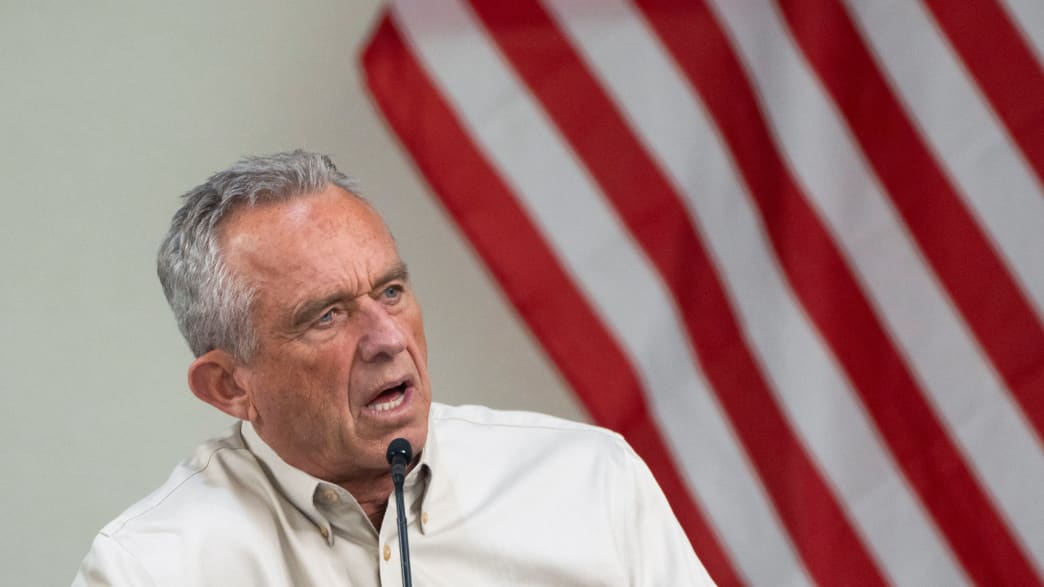Paul Pelosi Sells $1M in Visa Stock Weeks Before DOJ Lawsuit
Paul Pelosi, husband of Rep. Nancy Pelosi, sold a substantial amount of Visa stock just weeks before the Department of Justice (DOJ) announced its lawsuit against the financial services giant. Valued between $500,000 and $1 million, the sale has drawn attention amid concerns about insider trading by congressional members and their families.
The transaction, which occurred before the DOJ lawsuit became public, has led to speculation about whether members of Congress and their spouses trade based on non-public information, Breitbart reported.
The DOJ's lawsuit against Visa alleges that the company monopolizes the debit card market, raising concerns about unfair practices and anti-competitive behavior. Paul Pelosi's decision to sell shares in Visa before this information reached the public has fueled discussions about transparency in stock trading among government officials and their families.
Public Filing Reveals Timing of Stock Sale
On July 3, Christopher Josephs, a tech entrepreneur who operates the “Nancy Pelosi Stock Tracker,” publicly posted a congressional filing revealing Paul Pelosi’s sale of 2,000 Visa shares. The filing marked under “SP” indicated that the spouse executed the trade, further confirming that Pelosi’s husband made the trade.
Paul Pelosi, a prominent San Francisco-based venture capitalist and real estate investor, has long participated in financial markets. However, this recent Visa trade stands out due to its timing, occurring only weeks before the DOJ announced its investigation into Visa's business practices.
DOJ Accuses Visa of Market Monopolization
The DOJ filed the lawsuit after the sale, focusing on Visa’s alleged monopolistic control of the debit card market. The investigation aims to determine whether Visa has engaged in practices that prevent fair competition within the financial services industry. Paul Pelosi’s stock sale, which predated any public knowledge of the DOJ’s actions, has raised questions about whether he benefited from insider knowledge.
Bloomberg also reported on the trade, noting that the stock sold before the DOJ’s investigation became known to the public. This timing has led to concerns among critics who argue that members of Congress and their spouses may have access to non-public information that could influence financial decisions.
Concerns of Insider Trading Emerge
Paul Pelosi’s stock portfolio has garnered attention due to its impressive performance in 2023. His portfolio reportedly increased by 65.5% during the year, making it one of the highest-performing portfolios among members of Congress and their families. This has further heightened scrutiny of his financial activities, with critics pointing to potential conflicts of interest.
Concerns about insider trading among government officials are not new. Seventy-six percent of voters believe that members of Congress and their spouses have an “unfair advantage” when trading stocks. These concerns have been amplified by high-profile stock trades like Paul Pelosi’s, particularly when such trades occur before major government actions.
Public Pressure Mounts for Stock Trading Reforms
Paul Pelosi’s trade in Visa stock fuels a broader debate over whether members of Congress should be allowed to trade individual stocks at all. Several prominent lawmakers, including Senator Elizabeth Warren, advocate for stricter regulations or outright bans on stock trading for members of Congress and their families, citing potential conflicts of interest.
Although no evidence suggests that Paul Pelosi acted illegally, the timing of the sale has increased public pressure for reforms. Critics argue that the current system allows for the appearance of impropriety, even if no laws are technically broken.
Other Lawmakers’ Portfolios Beat the Market
Paul Pelosi is not the only congressional spouse with a high-performing stock portfolio. Several other lawmakers have also outperformed the market in 2023. Representative Dan Goldman (D-NY) saw his portfolio rise by 52.8%, while Representative Dan Crenshaw (R-TX) experienced an increase of 38.2%. Other notable gains include Representative John Curtis (R-UT), whose portfolio grew by 25.3%, and Senator Mitch McConnell (R-KY), whose portfolio increased by 18.1%.
These stock gains have raised further questions about whether members of Congress and their families leverage their positions for financial gain. Critics argue that even if these gains are legitimate, they contribute to the perception of unfairness in the political system.
Visa Lawsuit Raises Broader Questions About Market Control
The DOJ’s lawsuit against Visa, while still in its early stages, could significantly impact the debit card market and financial services industry. If authorities find Visa engaged in monopolistic practices, the company could face substantial fines and must change its business practices.
For Paul Pelosi, the financial implications of the lawsuit remain unclear. While he sold Visa stock before the lawsuit became public, the timing has sparked speculation about whether he acted on privileged information. As the DOJ progresses with its investigation into Visa, more details may emerge about the case and its potential impact on the company’s stock price.
Transparency in Stock Trading Remains a Hot-Button Issue
The issue of stock trading by members of Congress and their spouses will likely remain a contentious topic in the coming months. As public pressure builds for greater transparency and reform, lawmakers may face increasing calls to implement stricter regulations on stock trading.
For now, Paul Pelosi’s sale of Visa stock has added fuel to the ongoing debate about the ethics of stock trading by government officials and their families. While the DOJ pursues its lawsuit against Visa, questions about transparency and accountability in stock trading are unlikely to fade.



